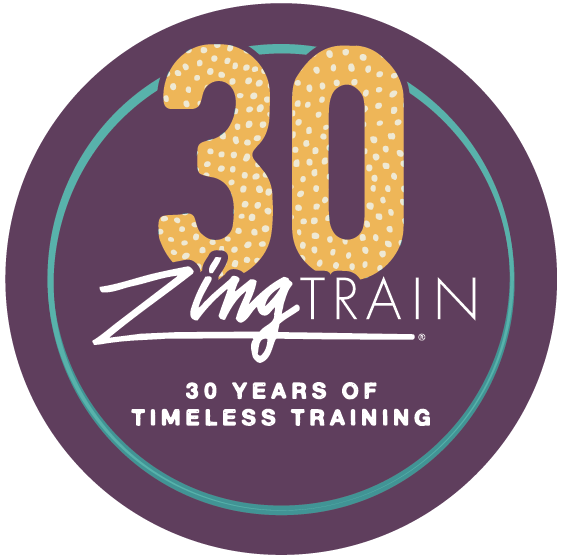Bottom Line Improvements Through Financial Training
If you were to ask your staff how much money your business makes each year, what would they say? I can tell you that when we first started asking our staff that question (about 15 years ago), we got answers that were all over the map — from figures that approximated our annual sales to numbers that were multiples of that amount. There were also plenty of blank stares. But no one, in the beginning, could say, “Well, our annual sales plan is $6 million and our NOP target is 5 percent, so if we hit our plan numbers, we’ll make $300,000 in profit.” It’s a very, very different picture today, however, and we are a much stronger and more financially successful organization as a result.
An Open Book
Now, I am not going to tell you that you can walk up to any Zingerman’s employee and that person will know the answer to any question you pose about the organization’s finances. I will, however, say that most people have a good idea of what the key financial numbers are for their departments and, more importantly, understand what they can do, day to day, to impact those numbers. Everyone in our organization is responsible for the financial success of the organization — in the same way that everyone is responsible for the level of customer service that we provide. In order to shoulder those responsibilities, our staff needs access to the right information and the skills needed to use that information effectively. So, in addition to customer service training (pretty standard in most companies), we offer classes in business finance.
In developing our approach to open‐book finance, Zingerman’s learned a lot from The Great Game of Business by Jack Stack and the training organization that grew out of it. I highly recommend their Web site (www.greatgame.com). One of the basic tenets of The Great Game of Business (and thus the name) is that business is truly like a game — with winners and losers. And without an understanding of business finance, they are playing the game without knowing the rules, without knowing the score, and without the chance to really share in the potential success.
Adapting Great Game’s methodology to fit our organizational culture, we created Zingerman’s 3 Steps to Great Finance:
1. Know and teach the rules of ZCoB (Zingerman’s Community of Businesses) finance.
2. Keep score.
3. Share the success.
Know and Teach the Rules of ZCoB Finance
There’s a very important training piece to effective open‐book finance. As we learned the hard way, just “opening the books” by handing employees copies of the financial statements doesn’t work. Most people don’t learn about business finance growing up, and even those of us with MBAs are often more comfortable with the banking and IRS views of finance rather than the metrics that are most relevant to operations.
The Rules
We teach several internal classes on finance and, about three years ago, started offering a ZingTrain seminar on our approach to open‐book finance (Fun, Flavorful Finance, see www.zingtrain.com for details) which is also open to our staff. The more knowledgeable our organization has become about finance, the better the organization’s financial results have been.
The Rules of ZCoB Finance Include:
1. Begin with a plan. If you don’t have a clear vision of where you want to end up, it’s unlikely that you’ll get to where you want to go. Our Annual Plan (some organizations use the term budget) is the financial vision of where
we want to be at the end of the fiscal year.
we want to be at the end of the fiscal year.2. Profit is good. All too often, employees think that the only purpose of profit is to make the owners rich. Owners know that a big chunk of profit (when there IS profit) goes to taxes, to pay down principal on debt, and for capital improvements. Yes, there may also be payouts to owners and/or profit‐sharing bonuses, but that’s not typically where most profit goes. Without profit, a business cannot survive for long, and it is critical that everyone understands that.
3. Cash is king. Is it possible to be profitable but have no cash or to have lots of cash but not be profitable? The answer to both questions is “yes,” but most people don’t understand that. Lack of cash to pay expenses (including payroll) can kill a business more quickly than lack of profitability.
4. Building value is essential. The money that an owner invests in a business could be invested elsewhere. If the owner doesn’t get a reasonable return on that investment, there’s a point at which he/she will want to (or need to) take that money out of the business and invest it where the return will be better. Then no one has a job. People need to understand this reality.
5. The DOR is the ZCoB scoreboard. DOR stands for “Department Operating Report.” It’s not an especially creative name, but it’s what we call the tool we use for keeping score on how we’re doing on the key numbers (both financial and non‐financial). Our DORs are whiteboards, hung on walls around the organization, and are the focus of attention in each department’s weekly staff meeting. Getting the numbers up on the wall, in a format that allows them to be changed/updated during the meeting, has been key. When we tried doing the DORs on paper spreadsheets, it just didn’t work.
6. It’s gotta tie out. Not only does the math on the DOR need to tie out, but also the “story behind the numbers” needs to make sense. For example, if you are projecting a big spike in sales, does the purchasing line reflect a comparable increase? And how will that impact cash on hand?
7. A dollar today is worth more than a dollar tomorrow. Most people understand this concept when it is explained in terms of the interest they have to pay if they have credit card debt — but could have avoided if they’d had the cash to pay upfront.
8. Follow the 80/20 rule. This rule is one we made up to emphasize the importance of using the financial information to look ahead, not just to do an autopsy on the past. The 80/20 rule states that we want to spend 80 percent of our energy and time in the staff meeting looking at what we can do moving forward, and only 20 percent of our time talking about what has already happened. In fact, the discussion about the past is only really relevant in terms of lessons learned that can be applied to future improvements.
9. Speak the same language. Shared vocabulary is essential for open‐book finance to work. Terms that we found needed clear definitions include “booking,” “sale” and “receipt.”
10. Success starts with each of us. In the same way that everyone within Zingerman’s is responsible for delivering great service, we are all responsible for delivering the financial results as laid out in the annual plan.
Keeping Score
To stay engaged in a game, the players need to know how the organization is doing and what the chances are of winning. Deciding on key metrics and having a “scoreboard” that allows everyone to track progress are important elements in successful open‐book finance.
As I mentioned above, Zingerman’s scoreboard is our DOR. The metrics
that are tracked on your scoreboard are often different than the numbers
on your financial statements, although there is usually overlap. For
example, Cash on Hand is something that we track on every DOR — and it
is also a line item on the Balance Sheet. Check
Average and Number of On‐Time Deliveries, on the other hand, do not show
up on the financial statements but are important DOR line items.
Open‐book finance ties staff more closely to the financial success (or lack thereof) of the organization as a whole. The idea is that when the organization does well, everyone benefits. On the other hand, it’s a reality of business life that, although hard work and smart decisions are important, there are also factors out of anyone’s control. When the organization does not do well, whether through poor decisions by staff or as a result of the overall economic climate or a weather‐related disaster, the reality is that there is no success to share.
When staff understands the rules of business finance, has a way to keep score, knows that they will share in the winnings when the organization does well, and realizes how they are impacted by poor financial results, they are in winnings when the organization does well, and realizes how they are impacted by poor financial results, they are in a position to impact financial results in a considered, conscious way. I’ll let Annette Miller, a supervisor at Zingerman’s Mail Order, have the final word: “We use open‐book finance every day, and it’s really helpful because we know where the company stands and what impact we can have on it. The 80/20 Rule makes it so much easier because we can forecast if we’re going to have a bumpy ride or a smooth ride, and adjust accordingly.”
 Back to Library
Back to Library





